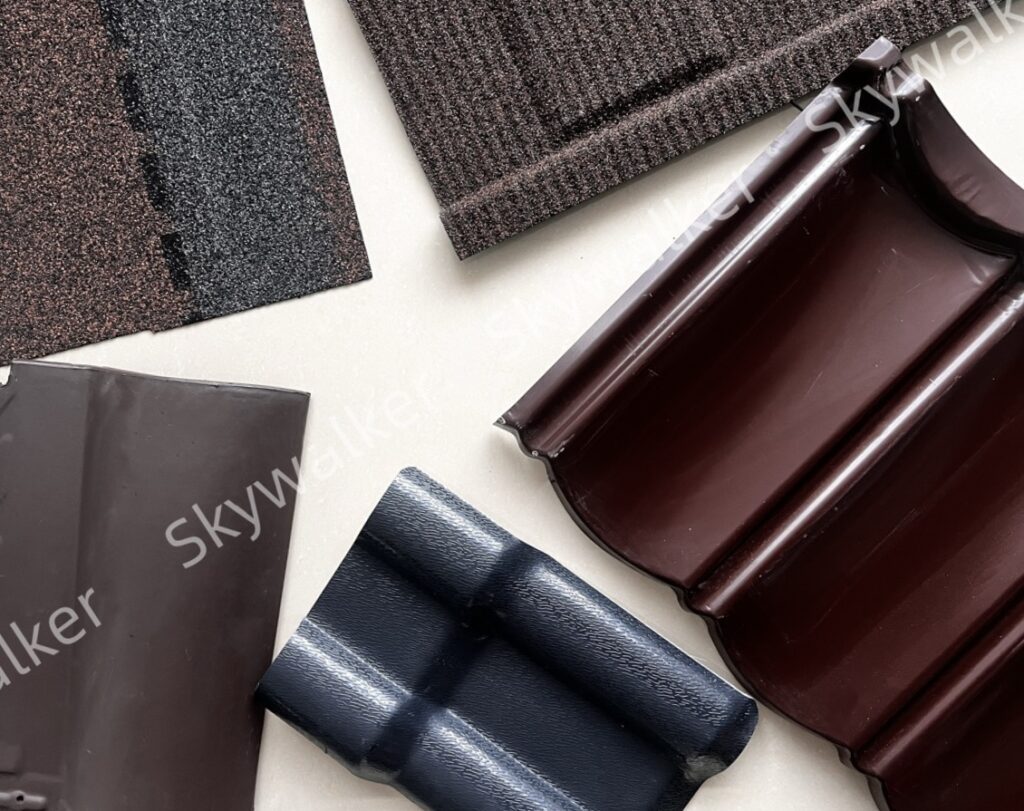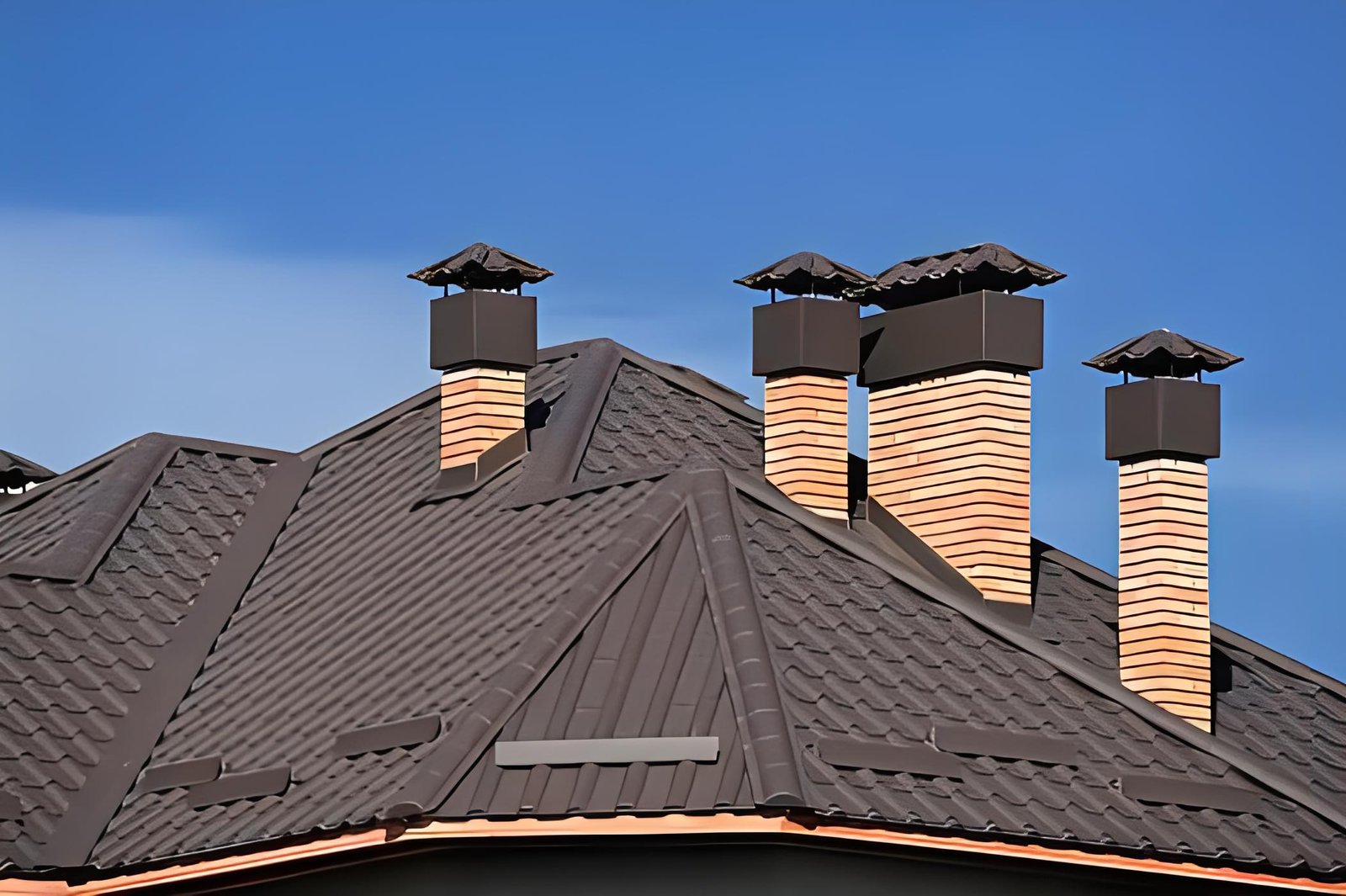Part I Importance of roof sound insulation
The importance of sound insulation is to create a quiet, comfortable indoor environment, protect people from noise interference, and provide better living and working conditions. Sound insulation is not only important for residential buildings, but is also vital for commercial buildings, schools, hospitals and other public places. Roofs are an important part of a building, and roof tiles, as a roof covering material, should not only be aesthetically pleasing and durable, but should also be considered for soundproofing performance. Here, we will compare and analyze the soundproofing performance of different types of roof tiles and evaluate their soundproofing effect from different aspects to help readers choose the right roof tile for their needs.
Part II: Factors affecting the sound insulation performance of roof tiles
Material selection: Roof tiles made of different materials have different sound insulation properties. For example, shingles and metal tiles show better performance in sound insulation, while grass shingles are relatively poor.
Thickness and quality: Thicker roof tiles provide better sound isolation. Higher quality shingles have better sound insulation properties because they absorb sound vibrations better.
Installation: Proper installation methods and details also make a difference in sound insulation performance. For example, tightly attaching roof tiles to the roof frame reduces the possibility of airborne sound transmission.
Part III:Analysis of sound insulation performance of different types of roof tiles
Color Painted Steel Tile
Color Painted Steel Tile: Color painted steel tile is a type of roof tile made of color coated steel sheets. Due to their metallic texture and thin structure, color steel tiles generally have poor sound insulation properties. They are better at soundproofing high-frequency sounds, but less effective at soundproofing low-frequency sounds. According to the actual data, the sound insulation level of color steel tiles is usually between 22-26 decibels.
Stone Coated Metal Tile
With their higher density and quality, Stone coated tiles have better sound insulation properties. The structural design of stone coated tiles usually adopts multi-layer structure, including surface stone grain layer, aluminum-zinc layer and fiber reinforced layer, these layers of structural design help to improve the sound insulation effect. The sound insulation level of stone coated tiles is usually between 26-30 decibels.
Asphalt Roofing Shingles
Asphalt roofing shingles are made of asphalt and fiber materials, which provide better soundproofing properties. The high density of asphalt shingles effectively blocks the transmission of sound. In addition, the structural design of asphalt roofing shingles often includes a soundproof membrane, further enhancing their soundproofing effect. Asphalt roofing shingles typically have sound insulation ratings between 26-30 decibels.
Clay Tile
Clay tile is a type of roof tile made from clay that has a high density and mass. Terra cotta tiles generally have better acoustic performance and are effective in blocking the transmission of sound. The structural design of terra cotta tiles usually utilizes multi-layer construction, such as double or triple layered construction, to provide better sound insulation. The sound insulation level of clay tiles is usually between 28-32 decibels.
Resin Shingles
Resin shingles are a type of roofing tile made of synthetic resin that has a lower density, and as a result, their soundproofing performance is generally poor. Resin tiles typically have sound insulation ratings between 24-28 decibels. They are better at insulating high-frequency sounds, but less effective at insulating low-frequency sounds.
To sum it up, clay tiles and colored stone coated tiles perform better in terms of sound insulation, with sound insulation levels usually ranging from 25-32 dbs. Asphalt roofing shingles and resin tiles have relatively good soundproofing performance, with soundproofing levels usually ranging from 24-30 dbs. Color steel tile sound insulation performance is weaker, sound insulation level is usually between 22-26 dbs.
Part IV Conclusion
When it comes to the actual choice, it is recommended to weigh it against the specific needs and budget. In addition to acoustic performance, other factors such as durability, water resistance, impact resistance and aesthetics need to be taken into account. If there is a high demand for sound insulation performance, clay tiles and colored stone coated tiles are better choices. In addition, colored stone coated tiles perform better in terms of durability, aesthetically pleasing and waterproofing, which is why they are becoming more and more popular worldwide!
Most importantly, before choosing roof tiles, it is advisable to consult a professional roofer or builder for more advice and guidance on soundproofing performance and other aspects of your home, so that you can choose the roof tiles that best suit your needs and enhance the soundproofing of your home! Here in SKW, we produce various types of roof tiles to meet your different requirements in all aspects, and our professionals are ready for your inquiry 24 hours a day.




